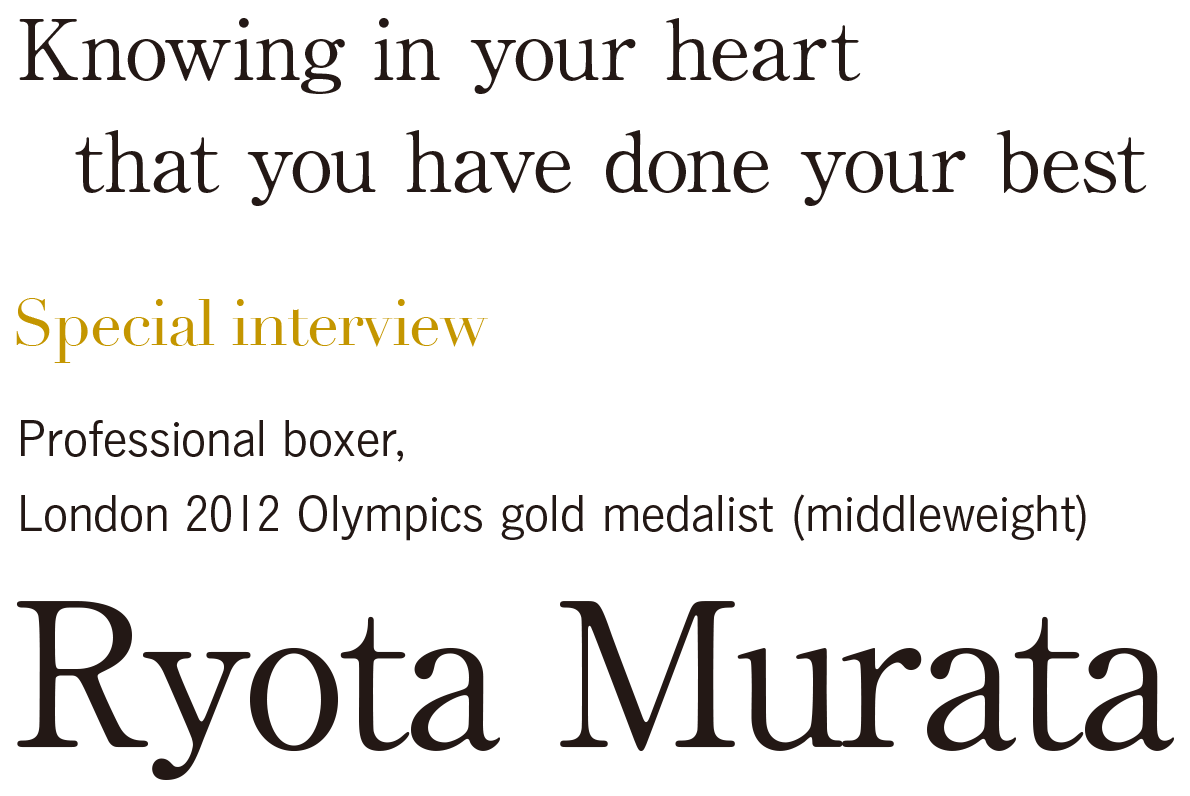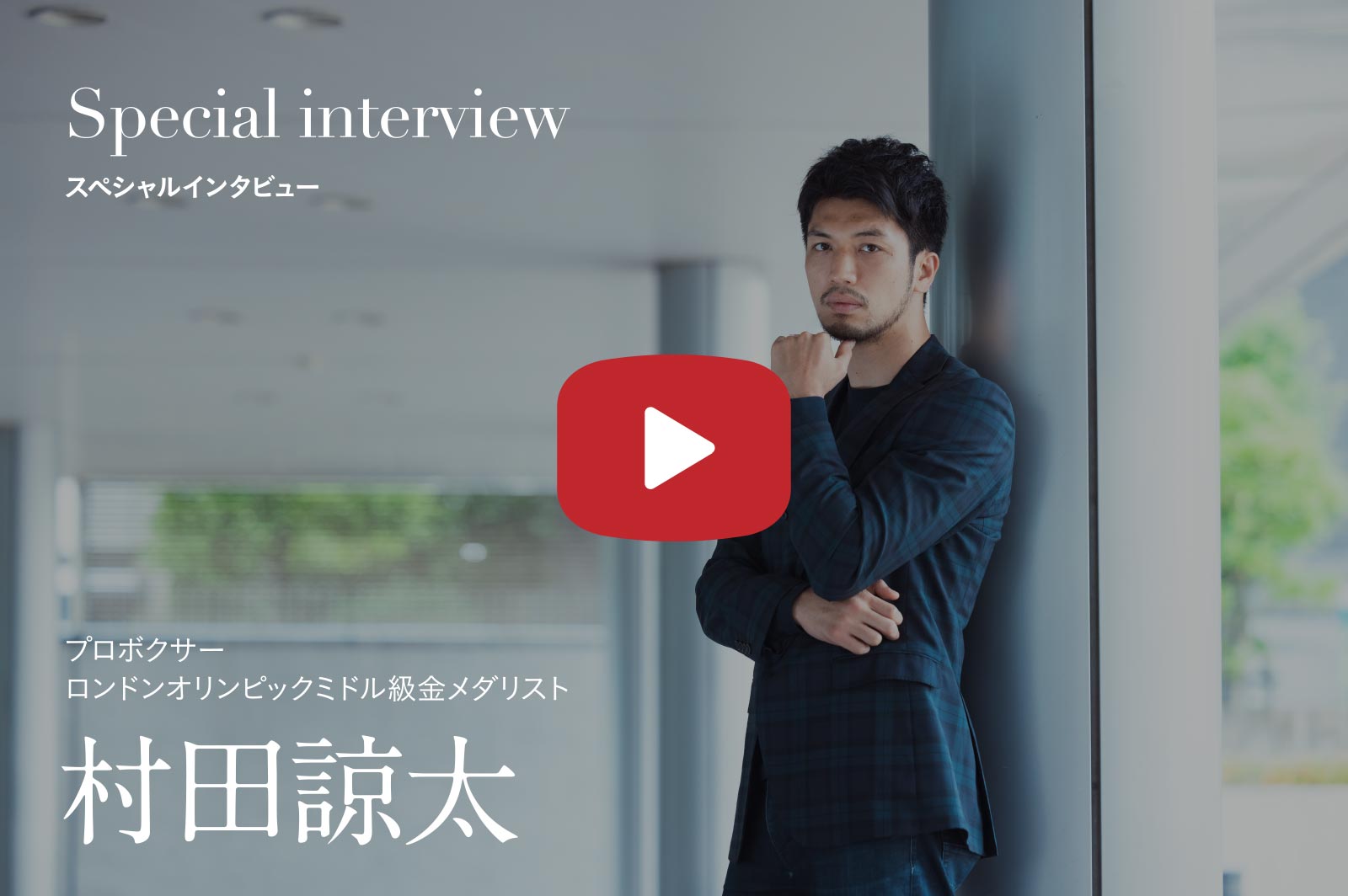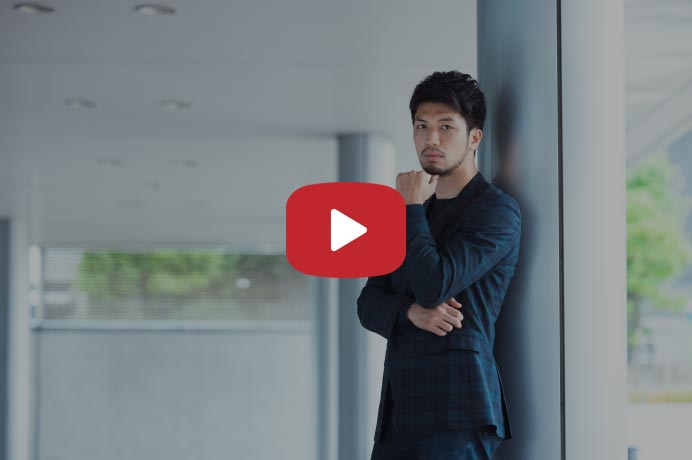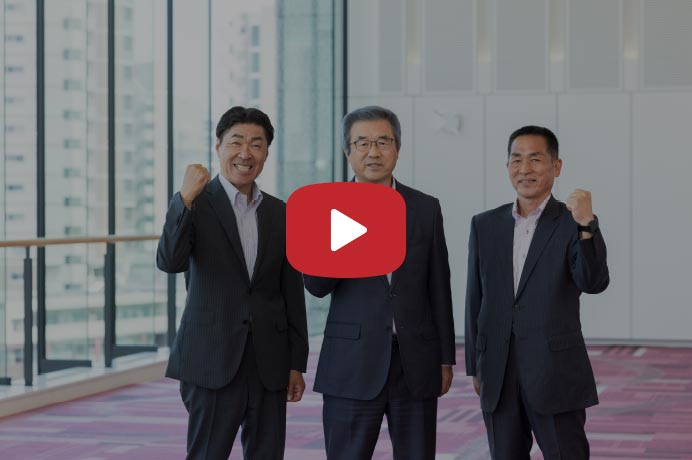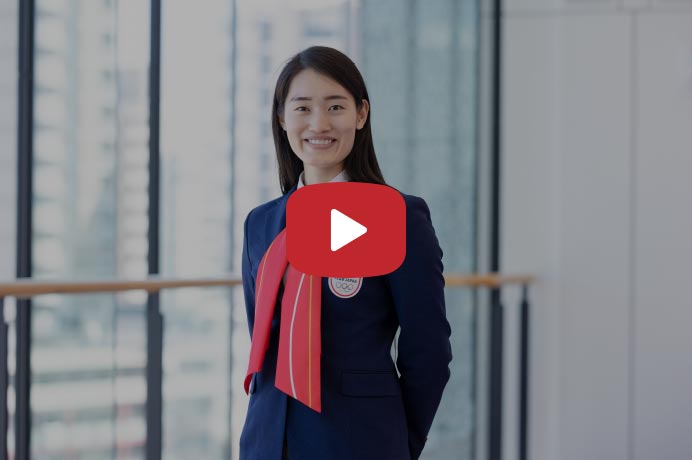- Alumni HOME
- Special interview Ryota Murata
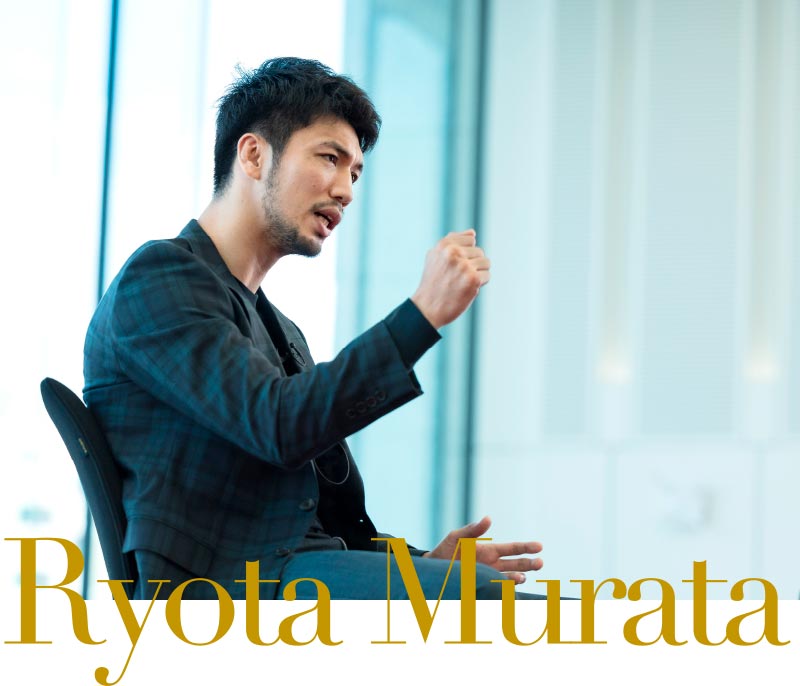
Profile
Graduated from the Department of Business Administration,
Faculty of Business Administration, in 2008.
Originally from Nara Prefecture, Mr. Murata won all major national boxing titles while in high school before entering Toyo University. Upon graduation, he joined the administrative staff at Toyo University. In 2012, he won the gold medal at the London Summer Olympics in the middleweight class. As a professional boxer, he was named the WBA middleweight champion twice, becoming Japan’s representative boxer both in name and substance.
Doing something great because it’s my decision
Discovering boxing
—Mr. Murata, you discovered boxing when you were in middle school and went on to be an Olympic gold medalist and the world champion as a professional boxer. What were you like as a boy before you started boxing?
Murata: Was I rambunctious? Yes, I probably was. It was certain that I had an excess of energy and
didn’t know what to do with it. One of my middle school teachers seems to have thought of me as someone
who was confused about how to use his energy but who would be OK once he was well oriented. I discovered
boxing during the period when I just couldn’t stay calm at school.
I tried boxing for the first time during my first year of middle school, but I quit after about two
weeks. I had thought of boxing as something cool, but I found that I had to do a lot of rough and uncool
stuff. It was too exhausting … I gave it a try again during the summer holidays of the second year. This
time, a foot injury prevented me from continuing. But later, when I searched for something I could
seriously dedicate myself to, it was boxing that came to mind after all. So I decided to start over in
the third year of middle school.
Looking back now, I can see the importance of making that decision by myself back then. I was able to
demonstrate tremendous power because it was my own decision.
Humiliating, crushing defeats in international matches
—You solidified your foundation to be a future Olympic gold medalist while in Minami Kyoto High School (present-day Kyoto Kogakkan High School).
Murata: Although I had made up my mind, there were times I really wanted to drop everything and run. But
then I met my teacher and mentor Maekawa Takemoto, who taught me to seriously commit myself to
boxing.
After entering Toyo University and its boxing club, I set myself the goal of winning international
titles. But I found the level of international competition totally different from what it was in Japan.
At an international event, I would win one bout and lose the next. I won the All-Japan Championships,
but my performance there was far from brilliant. I attended the 2006 Asian Games in a condition that I
thought would make me perfectly prepared, but I was miserably eliminated by the Athens (2004) Olympic
gold medalist. This experience deeply demoralized me and put me in the mindset that I simply couldn’t
win at the international level.
After that, I had difficulty getting fully serious about boxing. I can see clearly now how someone in
such a state of mind couldn’t get any luck. I didn’t qualify for the 2008 Olympics in Beijing, for
instance.
While I was a student at Toyo University, I was always haunted by negative, humiliating
ideas. In boxing, I managed to reach a certain point, but never beyond that. I learned my weaknesses
during those four years. This knowledge later helped me, at the London Olympic Games in 2012. But in
those days, I was just incapable of thinking positively.
I had only four years at the University, and
it was impossible for things to come to maturation within that timeframe. I was still in the phase of
planting the seeds and watering them. They weren’t sprouting yet. So it wasn’t really necessary to
disparage myself like that. I had to focus my efforts on what I had to do at that moment, to be sure,
but I didn’t have to pressure myself too much. I had to stick to the essentials, which is to keep
searching for answers in the situation you’re in at that moment.
I think it’s when you pause and look
back amid your struggle, doing your best at each moment, feeling defeated and getting yourself up again,
that you realize that those hardships were not wasted and they have in fact brought you where you are
today.
Getting out of a slump through self-examination
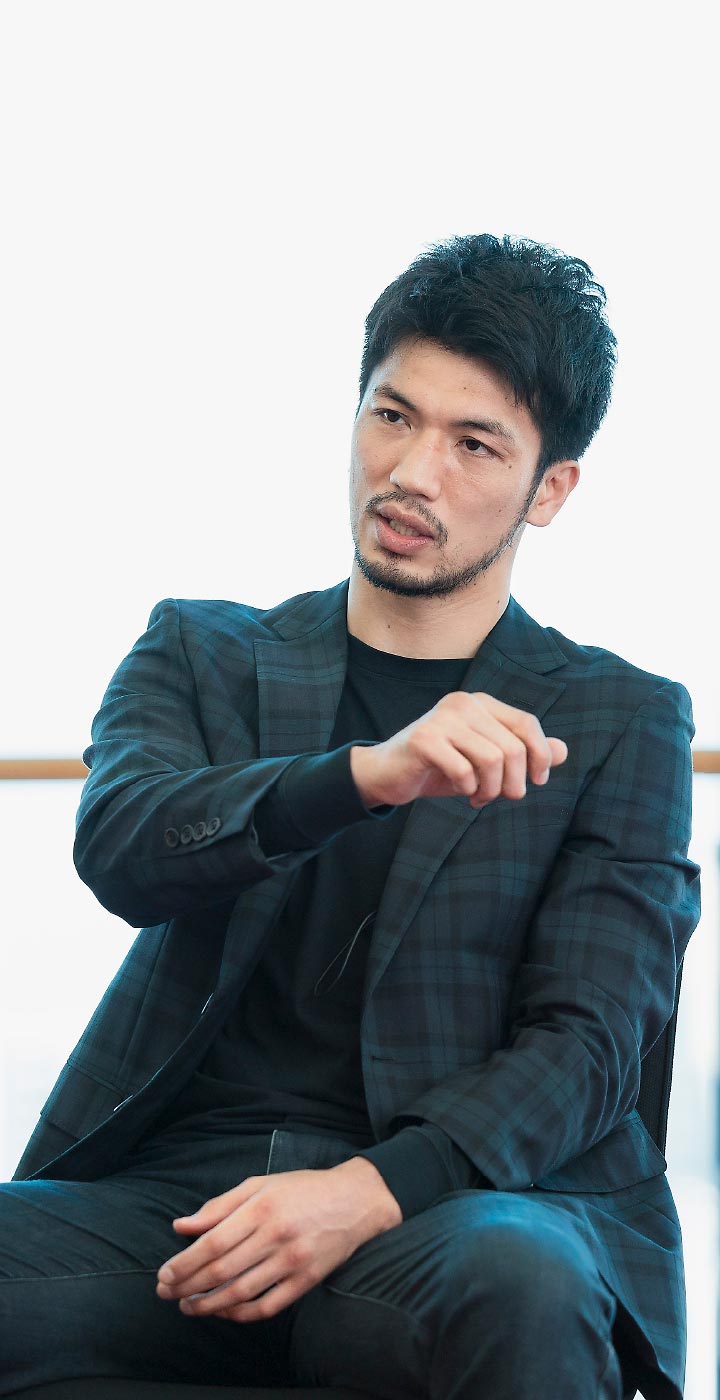
Something was missing in my life
I retired from the boxing scene once and worked as an administrative staff member at Toyo University.
But I barely had any computer skills and couldn’t do anything decent at work. I was feeling as if I had
lost my identity. I still had this hope for something special … In 2009, I returned to boxing and won at
the All-Japan Championships. At that time, I began to feel more and more strongly that I wanted to go to
the Olympics, the desire that had been smoldering in my heart.
At the university, it was fun to
interact with students as an administrator, and the job allowed me to learn new skills. But something
was missing in my life. I decided to try for the Olympics for my own sake.
So I began serious boxing
training while I continued my university job. I made efforts in my own way. It was tough both timewise
and physically because I trained after working full-time at the university. I had to devise different
ways to continue. I was able to do that because I was 23 back then. If someone challenged me to live
like that today, at the age of 36, I would gladly decline (laughs).
In 2011, I won the silver medal
at the World Championships after being defeated in the final a close match. So I said to myself, “I’ll
get a gold medal in London.” I had only that in sight.
—And you won the gold medal at the 2012 Summer Olympic Games in London. It was a special feat since you were the first Japanese middleweight Olympic gold medalist in 48 years.
Murata: At the Olympics, I did not perform particularly well, but I was able to win the gold medal. I
felt a gap between external evaluations and my self-evaluation at that time. I was making media
appearances almost every day, which gave me some wrong ideas. But generally, I was just getting by,
thinking, “Hey, I’m not really that great …”
My self-evaluation was that I won a gold medal with zero points. So I was torn between the public image
I thought I had to put up as the great Murata and my self-image of a not so extraordinary human
being.
In 2013, when I turned professional, I struggled initially because I was unable to fight as
well as I wanted to. What I did in those low moments was to take a hard look at myself, my
good-for-nothing self. I didn’t like doing that, but I revisited my failed matches and confronted myself
at my worst moments head-on … I was thinking that I’d have the opportunity to grow when I could clearly
see where I had failed. The other thing I did was to look at things from a different perspective. I was
able to pull myself out of my slump by doing these two things.
Toward the world’s top as a professional
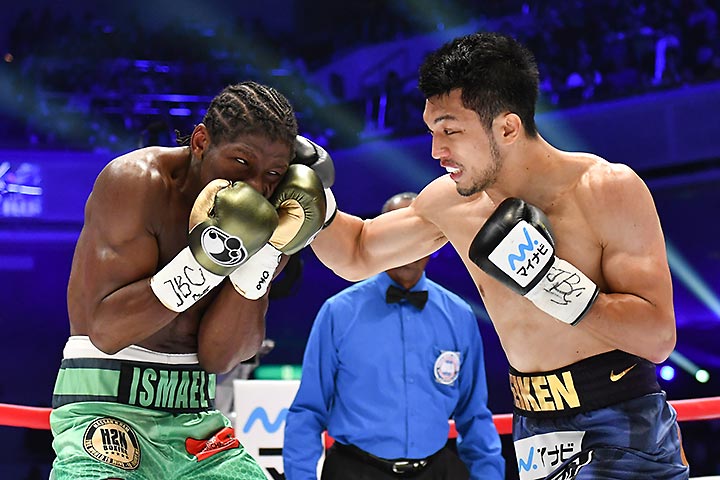
Photo courtesy Hiroaki Yamaguchi/Aflo
I felt that I could become the world’s No. 1 boxer also as a professional when I fought for a world
title for the first time and lost due to an ambivalent decision. The outcome was that I lost, but the
match seemed to indicate to me that I had reached that level, that I was now a boxer who could aim for
world titles.
Five months later, I fought against Hassan N’Dam N’Jikam again and became the world
champion. But my performance in that match was not that great. I felt that the outcome was good, but the
content was so-so.
After that, I failed to defend my title in the second defending match. This got me
into the habit of examining what was wrong with me. As a result, I was in perfect condition when I
fought against Rob Brant for the second time. Before getting into the ring, I declared to people around
me my determination to win no matter what. I succeeded in regaining the title and became the world
champion again.
After my victory in the first title defending match in December 2019, I was not able
to fight for two years and four months due to restrictions related to COVID-19. All professional boxers
have the experience of winning here and losing there, but I don’t think there are many who have
experienced as many as nine cancellations of scheduled matches. It was psychologically very tough. But
now I think I was really fortunate to have had this practice of enduring a difficult period.
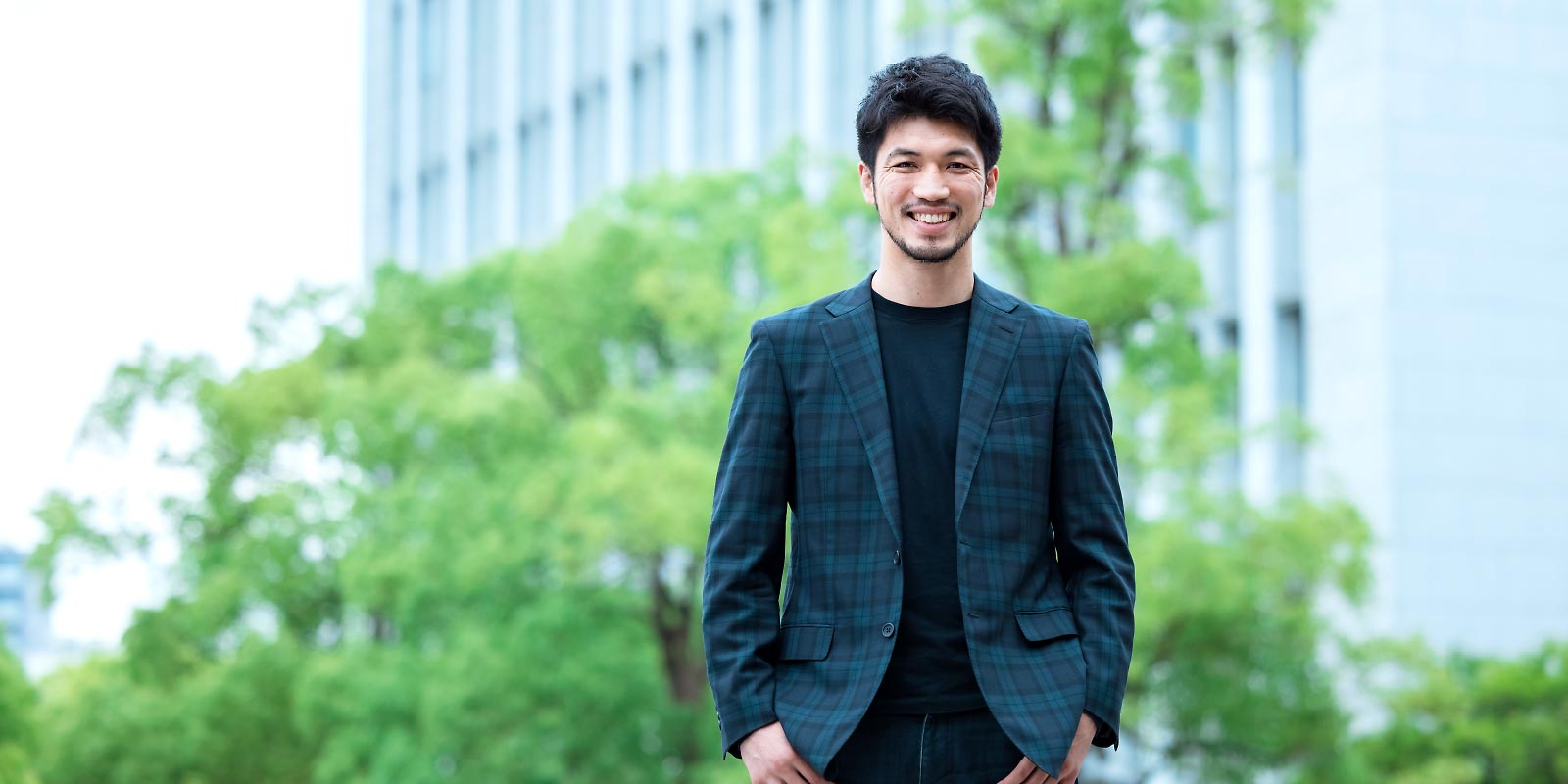
Experiencing a hardship is more important than victory or defeat
Inevitably, it became a period of serious self-reflection. I was able to see many different aspects of
myself, including those that were poor, negative, and so on, and of course I also noticed some positive
aspects. I came to see so many things clearly in those two years and four months.
There are times
when things don’t go as you want them to, and you suffer because of that. Nobody wants to go through
such a period, but if you experience it anyway, there will be a time one day when you feel that the
hardship has benefited you. For me, it was more important than victory or defeat. I discovered that I
had that much endurance in me. I want everyone who is going through a difficult period now to think that
they are in fact having a precious experience.
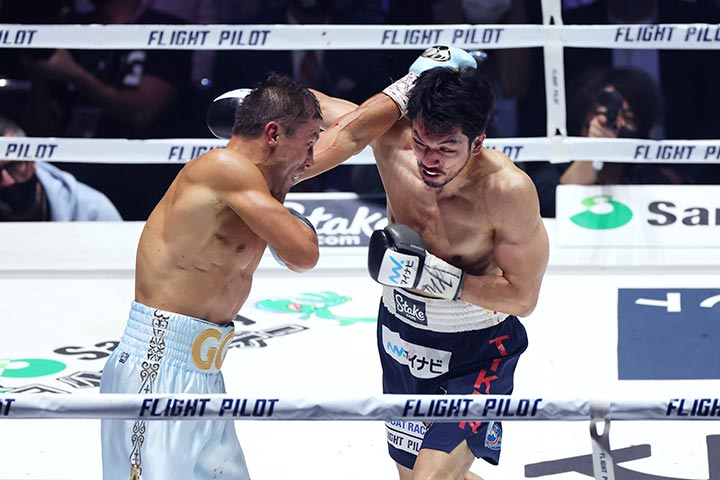
Photo courtesy Naoki Morita/Aflo Sports
—In April 2022, you fought a unification match against Gennady Golovkin. Despite your aggressive attacks, you lost your world champion title with a ninth-round TKO.
Murata: I haven’t watched the video of that match, except for the scene where I fell. In the beginning, I was fighting well and feeling that I was hurting my opponent well. But Golovkin changed his strategy once he figured out how strong my distance management was, and I couldn’t respond to that … I have to admit that he was a cut above me on the whole. I said to myself, “Oh, I’ve lost it.”
How to do your best
—Looking back on your boxing career, what thought comes to mind?
Murata: From my experience, I can say that when you make effort after effort after effort, and it
finally produces results, you can gain in confidence. For me, the first concrete result was the silver
medal at the 2011 World Championships. This led me to the Olympic gold medal and then to the world
champion titles as a professional. But there are times when your best efforts do not lead to any good
results. So you’ll never know whether you’ll ever succeed, and that’s scary.
So I’ve come to think
that having two criteria to judge your efforts is a good way of approaching this. One is “Are you
satisfied with the outcome?” and the other is “Are you satisfied with what you have done?”
This means
that results are important, but the process is just as important. You’ll be OK if you keep these two
questions in mind. I am sure that you can keep doing your best toward your goal without giving up.
- CONTENTS -
- MOVIES -
-
Special Interview
Ryota Murata -
Special Trialogue
Mitsuo Tatsukawa
Masayuki Matsunuma
Akihiko Fujita -
Athletes to Watch
Asa Ando
